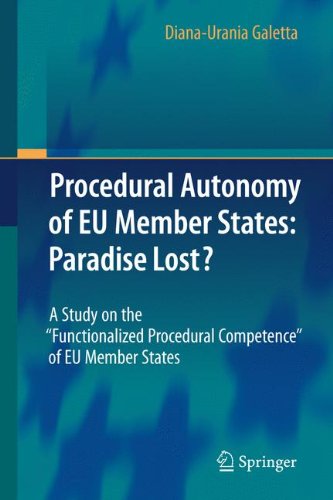

Most ebook files are in PDF format, so you can easily read them using various software such as Foxit Reader or directly on the Google Chrome browser.
Some ebook files are released by publishers in other formats such as .awz, .mobi, .epub, .fb2, etc. You may need to install specific software to read these formats on mobile/PC, such as Calibre.
Please read the tutorial at this link: https://ebookbell.com/faq
We offer FREE conversion to the popular formats you request; however, this may take some time. Therefore, right after payment, please email us, and we will try to provide the service as quickly as possible.
For some exceptional file formats or broken links (if any), please refrain from opening any disputes. Instead, email us first, and we will try to assist within a maximum of 6 hours.
EbookBell Team

4.7
76 reviewsIs the procedural autonomy of EU Member State a myth or a reality? What should this concept be taken to mean? Starting from the analysis of requirements and principles regulating, generally speaking, the relationships between Member States’ and EU law, this book provides a definition of procedural autonomy able to account for the concept’s inherent limits. Out of an analysis of the more relevant EU jurisprudence, the author identifies the rationale underlying the interventions of the ECJ on issues of procedural autonomy and the common logic that emerges from it; and reveals how, in an unchanged context of ‘procedural autonomy’ of the Member States, national procedural law becomes more and more ‘functionalized’ to the requirements of effectiveness of substantive EU law. As such, we should speak of a ‘functionalized procedural competence’ rather than of procedural autonomy. But this is by no means a case of “Paradise Lost.” The book includes a foreword by Prof. Jürgen Schwarze, one of the founding fathers of European Administrative Law.